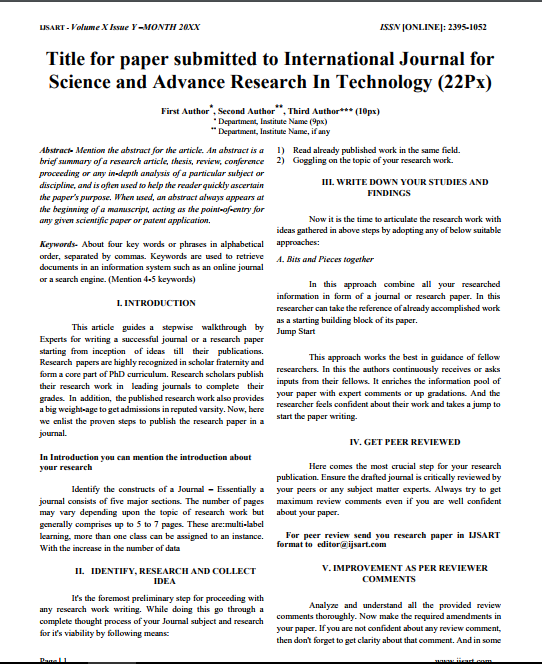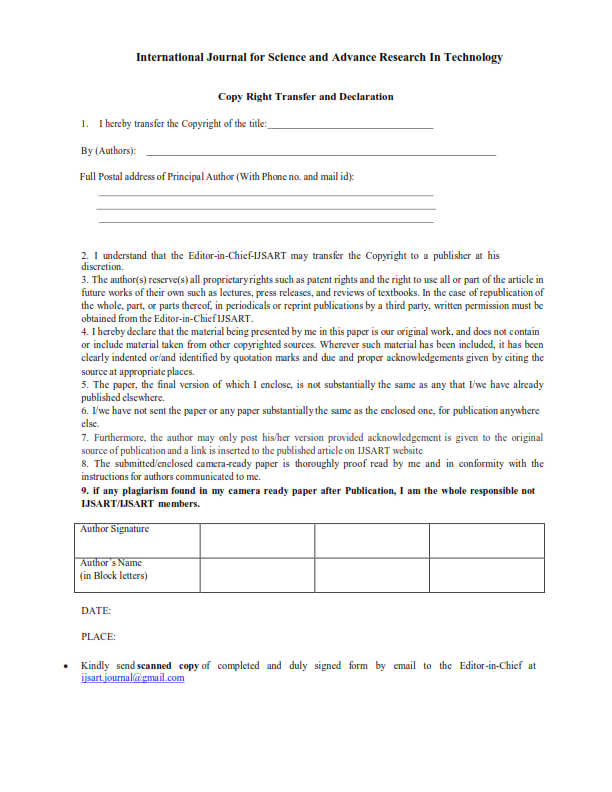Impact Factor
7.883
Call For Paper
Volume: 11 Issue 05 May 2025
LICENSE
Integrated Pos And Weighing Machine System For Ration Shop
-
Author(s):
Mr.T.Raja | Aarthi M | Aswini P | Lavanya M | Sandhiya C
-
Keywords:
Electronic Public Distribution, Biometric POS Terminal, Digital Weighing Scale, Aadhaar-Based Verification, Encrypted Data Synchronization, Offline Data Caching, Fraud-Resistant Subsidy System, Load Cell Integration, Secure Ration Delivery, E-Governance I
-
Abstract:
The Public Distribution System (PDS) In India, One Of The World's Largest Government-managed Food Security Frameworks, Is Tasked With Delivering Essential Food Commodities To Economically Weaker Sections Of The Population. Despite Its Critical Role, The Legacy Infrastructure Of PDS Remains Susceptible To Operational Inefficiencies, Manual Discrepancies, And Widespread Malpractice. To Address These Long-standing Systemic Flaws, This Study Proposes A Next-generation, Integrated Hardware-software Solution That Amalgamates Biometric Verification, Electronic Weighing, Automated Billing, And Centralized Reporting Into A Unified Point Of Sale (POS) Terminal Tailored For Ration Shop Environments. At The Heart Of The System Is A High-precision, Digitally Interfaced Weighing Module Built Using A Calibrated Load Cell Connected Through An Analog-to-digital Converter (ADC) To A Microcontroller-based Processing Unit. This Setup Eliminates The Subjective Error Introduced By Manual Weighing And Ensures Accurate Quantity Dispensation. The Device Is Seamlessly Linked With A Biometric Authentication Module, Compliant With The Aadhaar Framework, Which Performs Real-time User Identity Verification Using Fingerprint Or Iris Recognition. Authentication Data Is Securely Transmitted Through Encrypted Channels Using AES-256 Encryption, Ensuring Both Privacy And Integrity During Verification. Once The Beneficiary’s Identity Is Confirmed, The System Dynamically Retrieves Entitlement Information From A Government-hosted Database And Initiates The Automated Billing Process. Transaction Values Are Computed Based On Current Commodity Prices, Subsidy Allocations, And The Measured Weight, After Which A Digital Receipt Is Generated And Optionally Printed. All Transactional Data, Including Biometric Logs, Weight Metrics, Timestamps, And Location Identifiers, Are Stored In A Secure Local Buffer And Periodically Synchronized With A Central Cloud Repository Using RESTful APIs, Ensuring Seamless Integration With National PDS Monitoring Infrastructure. In Areas With Limited Internet Connectivity, The System Is Designed To Operate In Offline Mode, Employing Local Storage With Deferred Synchronization, Thereby Maintaining Service Continuity Without Compromising Data Integrity. The Architecture Is Modular And Adheres To Service-oriented Design Principles, Allowing Easy Firmware Updates, Component Replacement, And Horizontal Scaling. Furthermore, Administrative Dashboards Allow For Real-time Monitoring, Analytics-based Fraud Detection, And Performance Auditing Across Ration Shops At The State And District Levels. This Integrated Approach Significantly Reduces Leakages, Prevents The Misuse Of Ration Cards, And Ensures That Only Authenticated Beneficiaries Receive Entitlements, Thus Aligning With The Broader Objectives Of Digital Governance, Transparency, And Public Accountability. By Embedding Automation At Every Critical Junction Of The Ration Distribution Workflow, The Proposed Solution Redefines The Technological Baseline For Future-ready Welfare Delivery Systems In Developing Economies.
Other Details
-
Paper id:
IJSARTV11I5103671
-
Published in:
Volume: 11 Issue: 5 May 2025
-
Publication Date:
2025-05-25
Download Article


